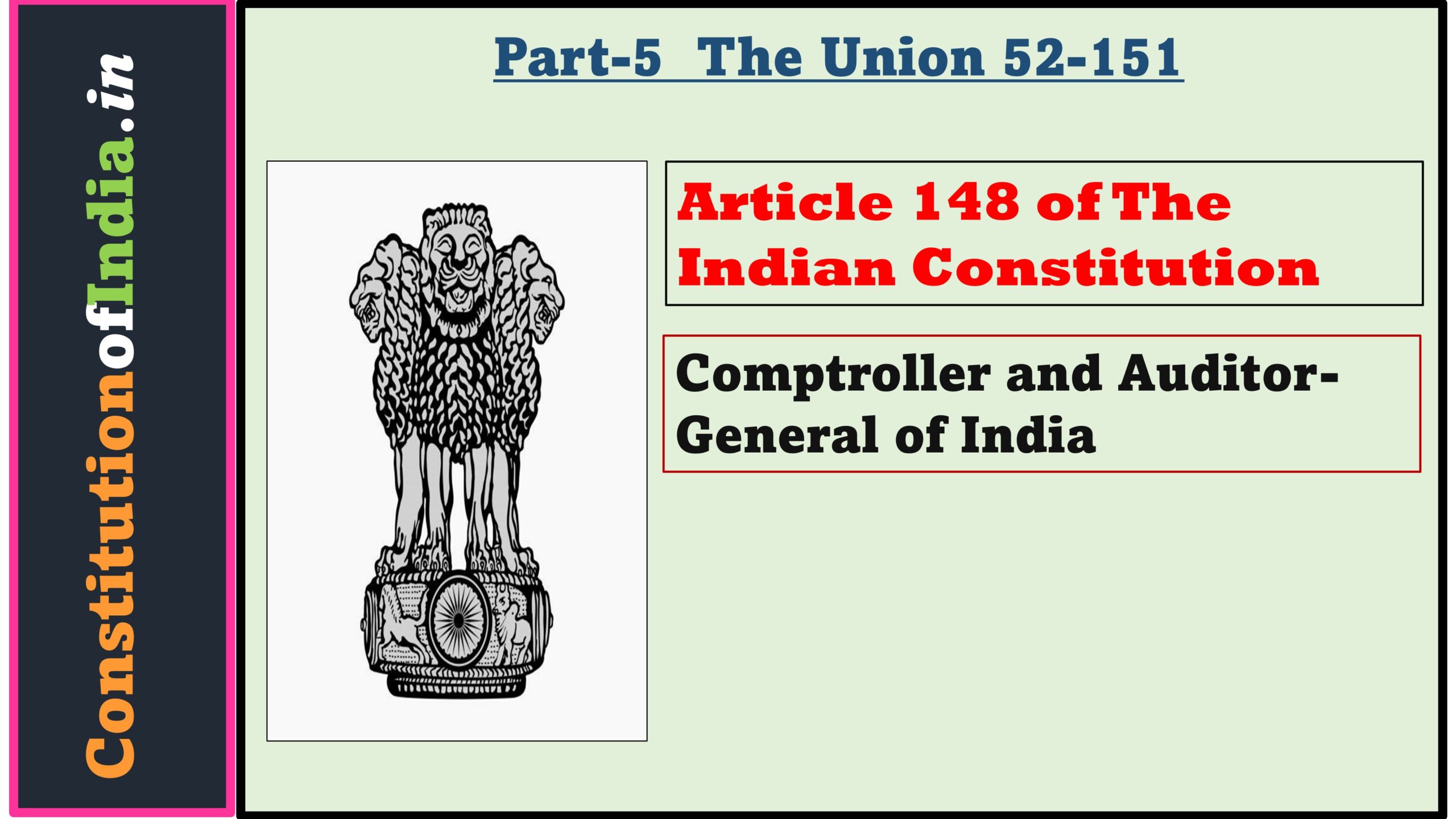Article 148 of Indian Constitution: Comptroller and Auditor-General of India.

Article 148 Comptroller and Auditor-General of India – Constitution Of India
(1) There shall be a Comptroller and Auditor General of India who shall be appointed by the President by warrant under his hand and seal and shall only be removed from office in like manner and on the like grounds as a Judge of the Supreme Court.
(2) Every person appointed to be the Comptroller and Auditor-General of India shall, before he enters upon his office, make and subscribe before the President, or some person appointed in that behalf by him, an oath or affirmation according to the form set out for the purpose in the Third Schedule.
(3) The salary and other conditions of service of the Comptroller and Auditor-General shall be such as may be determined by Parliament by law and, until they are so determined, shall be as specified in the Second Schedule: Provided that neither the salary of a Comptroller and Auditor-General nor his rights in respect of leave of absence, pension or age of retirement shall be varied to his disadvantage after his appointment.
(4) The Comptroller and Auditor-General shall not be eligible for further office either under the Government of India or under the Government of any State after he has ceased to hold his office.
(5) Subject to the provisions of this Constitution and of any law made by Parliament, the conditions of service of persons serving in the Indian Audit and Accounts Department and the administrative powers of the Comptroller and Auditor-General shall be such as may be prescribed by rules made by the President after consultation with the Comptroller and Auditor-General.
(6) The administrative expenses of the office of the Comptroller and Auditor-General, including all salaries, allowances and pensions payable to or in respect of the persons serving in that office, shall be charged upon the Consolidated Fund of India.